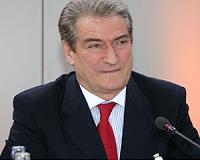| . |  |
. |
Dubai, United Arab Emirates (UPI) Dec 28, 2010 The United States-dominated defense sales in the Persian Gulf in 2005-09 and delivered 54 percent of the Middle East's military hardware, including advanced systems that had been denied Arab states because of Israeli objections, analysts say. The Stockholm International Peace Research Institute, which monitors global arms sales, said in a recent study that the United Arab Emirates was the largest market for conventional arms in that time frame. SIPRI reported that U.S. defense companies won 60 percent of contracts by value awarded by the federation of seven emirates, a key oil producer and a member of the Gulf Cooperation Council, with Saudi Arabia, Kuwait, Oman, Qatar and Bahrain. Dan Darling, a Middle East defense analyst with the U.S.-based Forecast International, said the United States has consolidated its status as the principal supplier of advanced military systems to the United Arab Emirates, which has emerged a regional military heavyweight. "The U.S. arms sales to these countries are meant to improve the defense capabilities of the recipient nations, reinforce the sense of U.S. solidarity with its GCC partners and, finally, create a semblance of interoperability with American forces," Darling observed. "This is noteworthy as France has traditionally been a supplier to the United Arab Emirates, selling them everything from combat aircraft to helicopters to battle tanks." The United States plans to sell Saudi Arabia, the principal power in the GCC and Iran's main rival for regional leadership, advanced weaponry worth some $67 billion over the next 10 years. That's the biggest arms deal in U.S. history and it's part of some $123 billion in anticipated arms purchases by the gulf states over the next decade as they build up their military capabilities to counter Iran. "With the Persian Gulf in flux, the United States is trying to get back into a position where the natural Arab-Persian divide in the region balances itself out," the U.S. global security consultancy Stratfor observed. "From the U.S. point of view, Iran and Iraq could go on fighting each other for years -- as they did throughout the 1980s -- as long as neither is capable of wiping out the other. "Right now, Iraq is in far too weak a position and is too wedded to the Iranians to rebuild itself as a useful counter to Iran, so that responsibility is increasingly falling to Iraq's neighbors." Stratfor, noting the massive U.S. arms package proposed for Saudi Arabia, said the Americans are "investing the years into shaping the Saudi military into an effective force and encouraging the United Arab Emirates to reduce its vulnerabilities to Iran." The top four nations providing arms to the region after the United States and France are Russia, Britain and China. Most Russian and Chinese arms deliveries have gone to Iran. Western suppliers don't deal with the Islamic Republic because of international arms embargoes that have been in effect more or less since the Islamic Revolution in 1979. However, Russia still entertains hopes of securing an arms package worth $2 billion-$2.4 billion to Saudi Arabia. Riyadh proposed a deal involving 150 T-90 main battle tanks, 250 BMP-3 armored personnel carriers and short- and long-range surface-to-air missiles, apparently to persuade Moscow not to sell powerful S-300PMU air-defense missiles to Iran. Russia announced in June it wouldn't deliver on its $800 million 2007 deal with Tehran. Israel, which got $2.78 billion in U.S. military aid in 2010, is the region's second largest defense spender. Its main supplier is the United States, which has vowed to maintain Israel's technological superiority. "Though the U.S. remains sensitive to the potential erosion of Israel's regional qualitative military edge, it has granted major equipment sales to gulf nations in recent years," observed Darling of Forecast International. These have included advanced the MIM-104 Patriot air-defense system built by the Raytheon Co. and Lockheed Martin GBU-28 "bunker buster" bombs to the emirates, Boeing AH-64D Apache Longbow combat helicopters to Saudi Arabia and Lockheed Martin F-16s, Boeing AGM-84 Harpoon and Lockheed AGM-114 Hellfire missiles to Egypt. GCC defense spending is expected to rise in 2011 by an additional 2.5 percent, Darling reported. "Over the next five years, the greater Middle East defense market is projected to grow by over 11 percent, reaching nearly $120 billion by 2014," he said.
Share This Article With Planet Earth
Related Links The Military Industrial Complex at SpaceWar.com Learn about the Superpowers of the 21st Century at SpaceWar.com
 Albanian PM cited as key arms dealer during Kosovo war
Albanian PM cited as key arms dealer during Kosovo warBelgrade (AFP) Dec 27, 2010 The influential Serbian daily Politika on Monday cited legal documents identifying Prime Minister Sali Berisha of Albania as one of the key arms traffickers during the 1998-99 war in Kosovo. "Sali Berisha was one of the main arms traffickers during the Kosovo conflict. His name is mentioned by four witnesses in documents from the (Serbian) war crimes prosecutor," Politika, a pro-government d ... read more |
|
| The content herein, unless otherwise known to be public domain, are Copyright 1995-2010 - SpaceDaily. AFP and UPI Wire Stories are copyright Agence France-Presse and United Press International. ESA Portal Reports are copyright European Space Agency. All NASA sourced material is public domain. Additional copyrights may apply in whole or part to other bona fide parties. Advertising does not imply endorsement,agreement or approval of any opinions, statements or information provided by SpaceDaily on any Web page published or hosted by SpaceDaily. Privacy Statement |